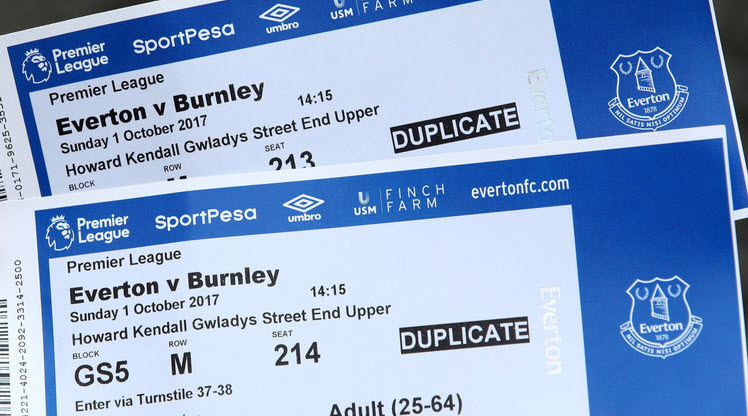Sports tickets fluctuate due to the industry using a pricing strategy called “dynamic pricing.” Stadiums and arenas use dynamic pricing because this increased their ticket sales when stadiums tested the pricing strategy out, and now it is the standard pricing strategy. Many other industries use dynamic pricing such as tourism, hotels, airlines, and much more. ShooWin gives you the 411 on what dynamic pricing is, and how you can use this to your advantage.
What is dynamic pricing?
Dynamic pricing simply means that the price of game tickets isn’t always the same. The price for a single game’s ticket can continue to fluctuate up to the start of the game, due to real-time factors. In a general sense, the price goes up with ticket scarcity or ticket demand. If there are a lot of people wanting to go to the game, the price goes up. If the tickets are in short supply the price goes up. If it is game day and the seats are not full the price will go down. The price varies depending on the factors below, which ultimately affects the demand for the tickets.
Day of week
Tickets sell better during the weekend. This is because people usually save their fun outings for the weekend rather than the weekdays. Most people also work during the week and don’t have much time to go to a game during the week. Sunday night football, due to high amounts of branding, has made this day a high, in demand, day of the week. Avoid Sundays if you are trying to get a good price.
The weather
If the weather is forecasted to be bad this could drive ticket prices down. This is because fewer people would be willing to go to the game because they don’t want to be uncomfortable. The weather might have little effect on highly anticipated games where two nationally popular or high winning teams are playing each other. Here are some types of weather that you might be able to take advantage of, to get a lower ticket price.
- Rain – Nobody likes to get wet. There are people that have bought a ticket that would probably rather not go to the game. Take advantage of this and try to buy their ticket from them on sites like craigslist or secondary ticket marketplaces.
- Snow – This weather condition is arguably the worst. It’s cold and it is wet. Nobody likes to be either usually. Take advantage of this and you could get tickets at a good price.
- Hot heat – Nobody likes to be too hot either. Nobody likes getting sunburnt. Nobody likes to sit on a burning bleacher. Dress cool, prepare for the heat and take advantage of this by getting a lower price.
- High wind – This isn’t a deal breaker weather condition but coupled with rain, it is quite undesirable.
- Below freezing – This is arguably worse than snow. Usually for it to snow it has to be at freezing temperatures or a little bit above. Snow isn’t that cold but below freezing can be brutal. Take advantage of this by dressing very warm and you could find yourself paying little for your ticket.
Who is playing
The price of game tickets rises depending on who is playing in the game too. Paying attention to who your team’s opponent is, is very important. The following are ways the team can affect ticket cost.
- If the home or away team is popular, the ticket prices usually rise. More people want to see a football team that is popular at the moment.
- If a team has a high win rate, more people will want to see the game as well, which drives up demand, and thus, prices.
- If the two teams who meet are rivals and are sure to put on a good game, this will also make prices higher because more people want to see a good game, making demand higher.
If your team is a nationally popular team or is on a winning streak you could be stuck with high ticket prices unless the opposing team is doing poorly. You can take advantage of lower ticket prices by choosing a game where the teams are not so popular, have low win rates, and predictions call for a game that won’t be that close.

What this means for ticket buyers
This often means you could buy a game ticket and find a better deal the next day due to a change in the perceived value of the ticket.
So how do you take advantage of this? Well, if you want to go to a game that is highly sought after, you should buy the ticket as soon as possible and at the price offered. You could wait to see if the weather turns bad, but it’s a bit risky, and you may never get your ticket if they end up being sold out. You might have to turn to scalpers or secondary marketplaces and buy a ticket from someone who doesn’t want to or can’t go anymore. With a game that is in high demand, individual sellers will often increase prices to make a profit so you don’t have much room to price shop and you should settle for the normal ticket prices.
If you are buying a ticket for a game that might be undesirable for some to go to you can wait to buy your ticket. You might be able to get a screaming deal on a ticket that someone has already bought, but fears they won’t sell it. With a game that is in less demand, you have the leverage and you can negotiate a good price quite well.
This real-time pricing strategy has been positively received by most fans due to teams offering great discounts on undesirable games. Secondary ticket marketplaces have been using this strategy for years, so many fans are accustomed to the fluctuating prices. Using dynamic pricing to your advantage will help you save money and get you in the stands to cheer on your favorite team.









